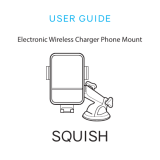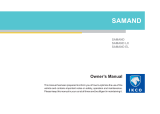13
Introduction
Your new Kia vehicle is designed to use
only unleaded fuel having a pump octane
number ((R+M)/2) of 87 (Research
Octane Number 91) or higher.
Your new vehicle is designed to obtain
maximum performance with UNLEADED
FUEL, as well as minimize exhaust emis-
sions and spark plug fouling.
Never add any fuel system cleaning
agents to the fuel tank other than what
has been specified. (Consult an author-
ized Kia dealer for details.)
✽✽
NOTICE
Tighten the cap until it clicks one time,
otherwise the fuel cap open warning
indicator light will illuminate.
Gasoline containing alcohol and
methanol
Gasohol, a mixture of gasoline and
ethanol (also known as grain alcohol),
and gasoline or gasohol containing
methanol (also known as wood alcohol)
are being marketed along with or instead
of leaded or unleaded gasoline.
Do not use gasohol containing more than
10% ethanol, and do not use gasoline or
gasohol containing any methanol. Either
of these fuels may cause drivability prob-
lems and damage to the fuel system.
Discontinue using gasohol of any kind if
drivability problems occur.
Vehicle damage or drivability problems
may not be covered by the manufactur-
er’s warranty if they result from the use
of:
1.Gasohol containing more than 10%
ethanol.
2.Gasoline or gasohol containing
methanol.
3.Leaded fuel or leaded gasohol.
"E85" fuel is an alternative fuel com-
prised of 85 percent ethanol and 15 per-
cent gasoline, and is manufactured
exclusively for use in Flexible Fuel
Vehicles. “E85” is not compatible with
your vehicle. Use of “E85” may result in
poor engine performance and damage to
your vehicle's engine and fuel system.
Kia recommends that customers do not
use fuel with an ethanol content exceed-
ing 10 percent.
✽✽
NOTICE
Your New Vehicle Limited Warranty
does not cover damage to the fuel system
or any performance problems caused by
the use of “E85” fuel.
FUEL REQUIREMENTS
WARNING - Refueling
• Do not "top off" after the nozzle
automatically shuts off. Attempts
to force more fuel into the tank
can cause fuel overflow onto you
and the ground causing a risk of
fire.
• Always check that the fuel cap is
installed securely to prevent fuel
spillage in the event of an acci-
dent.

























